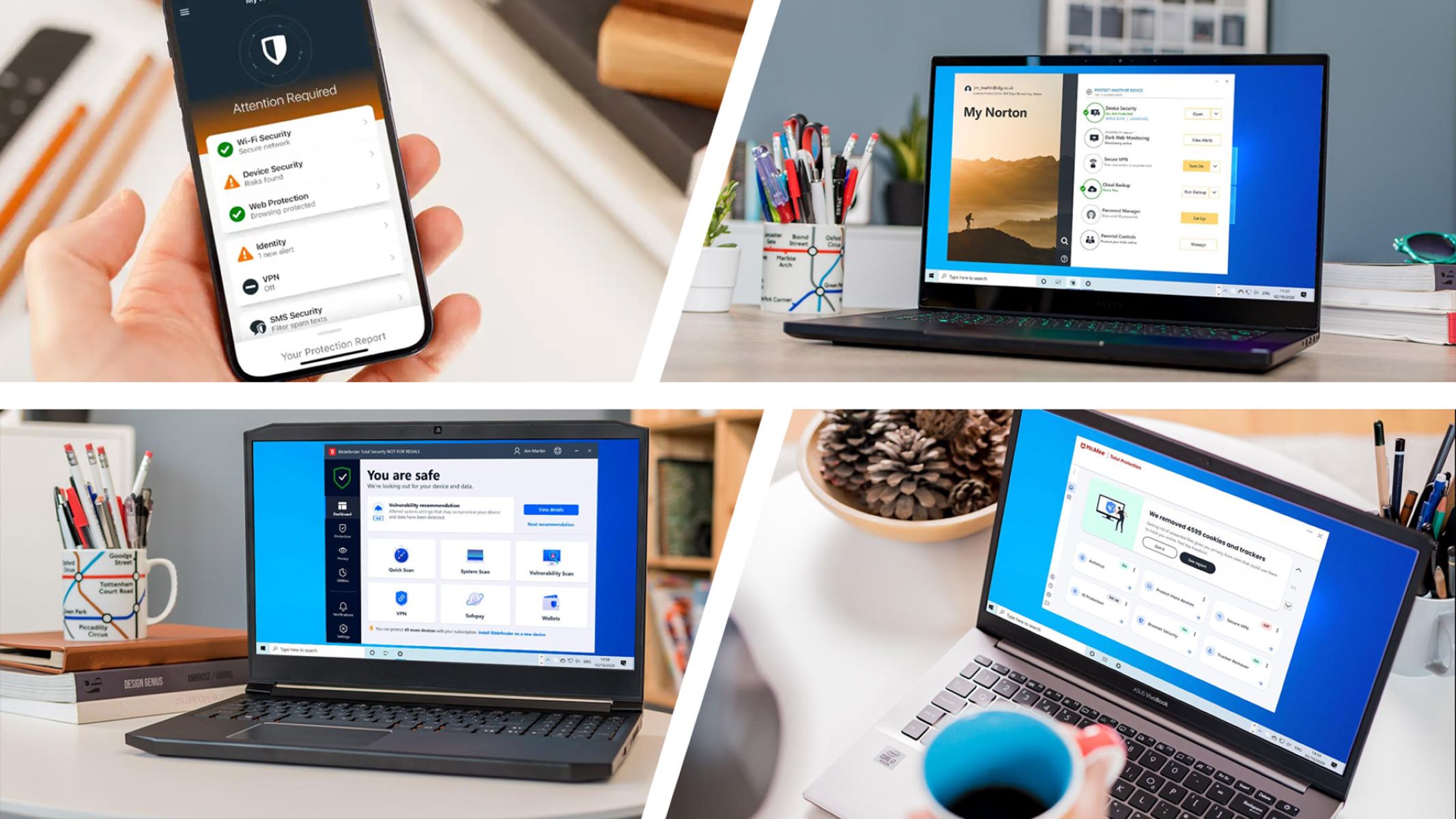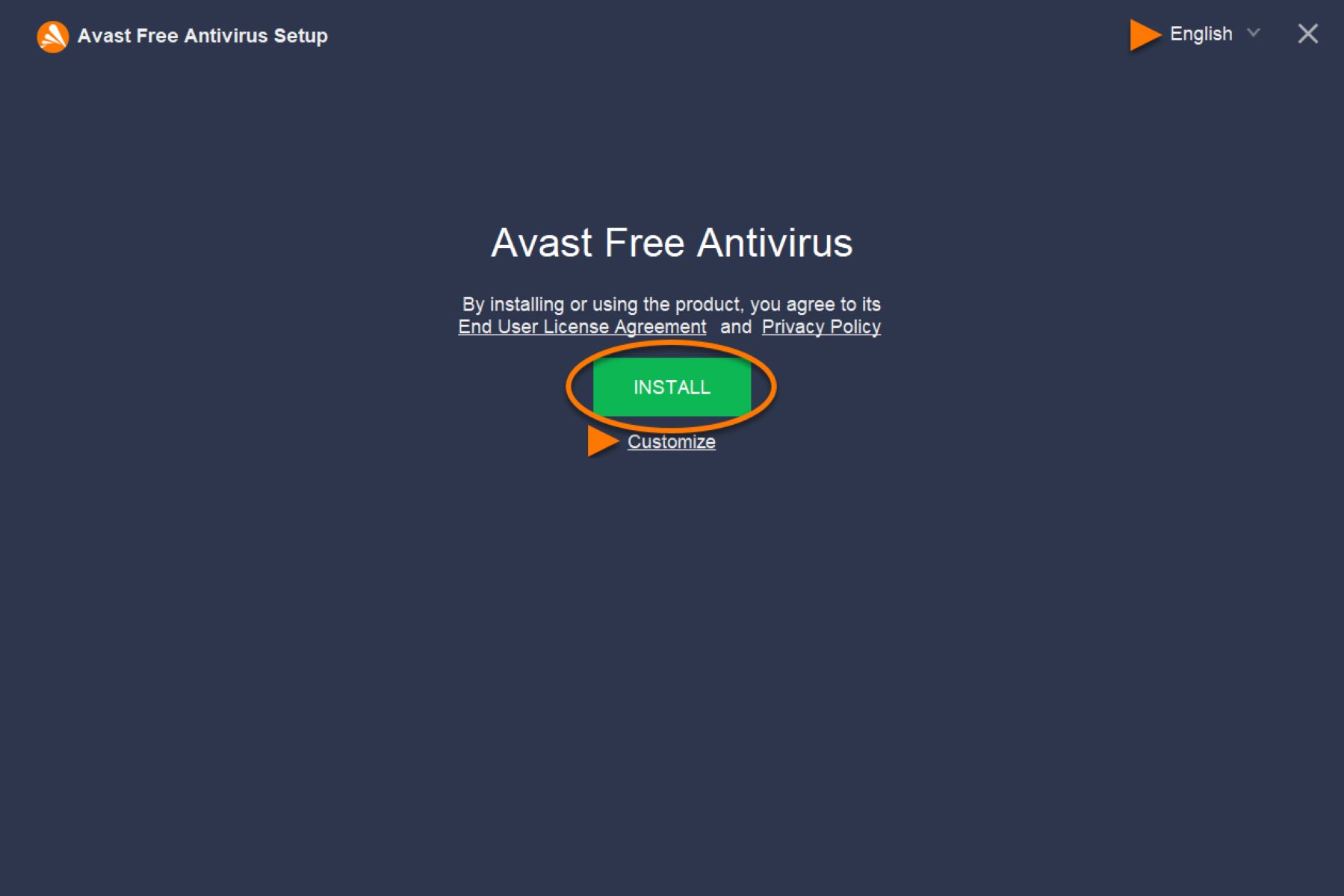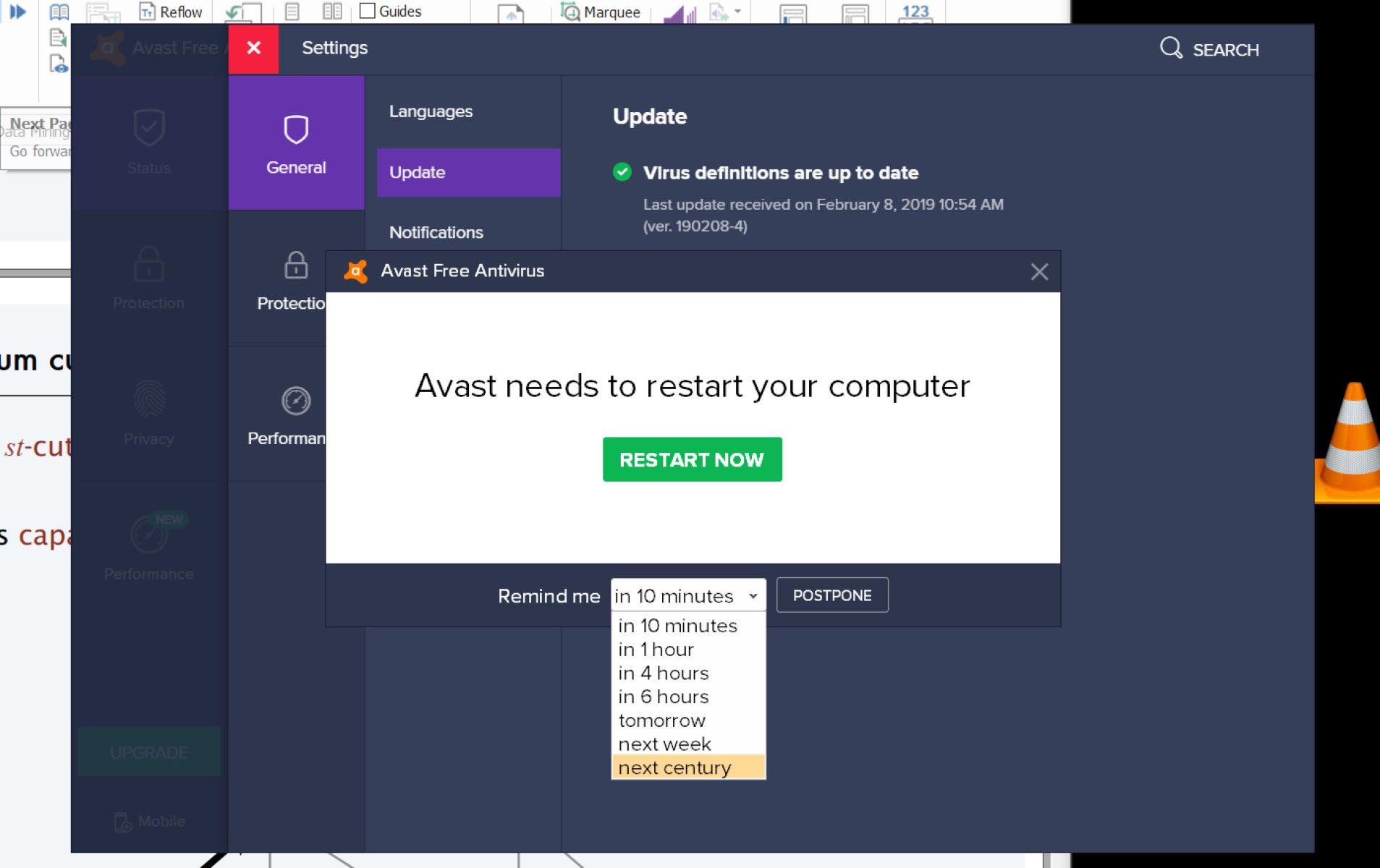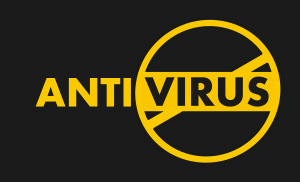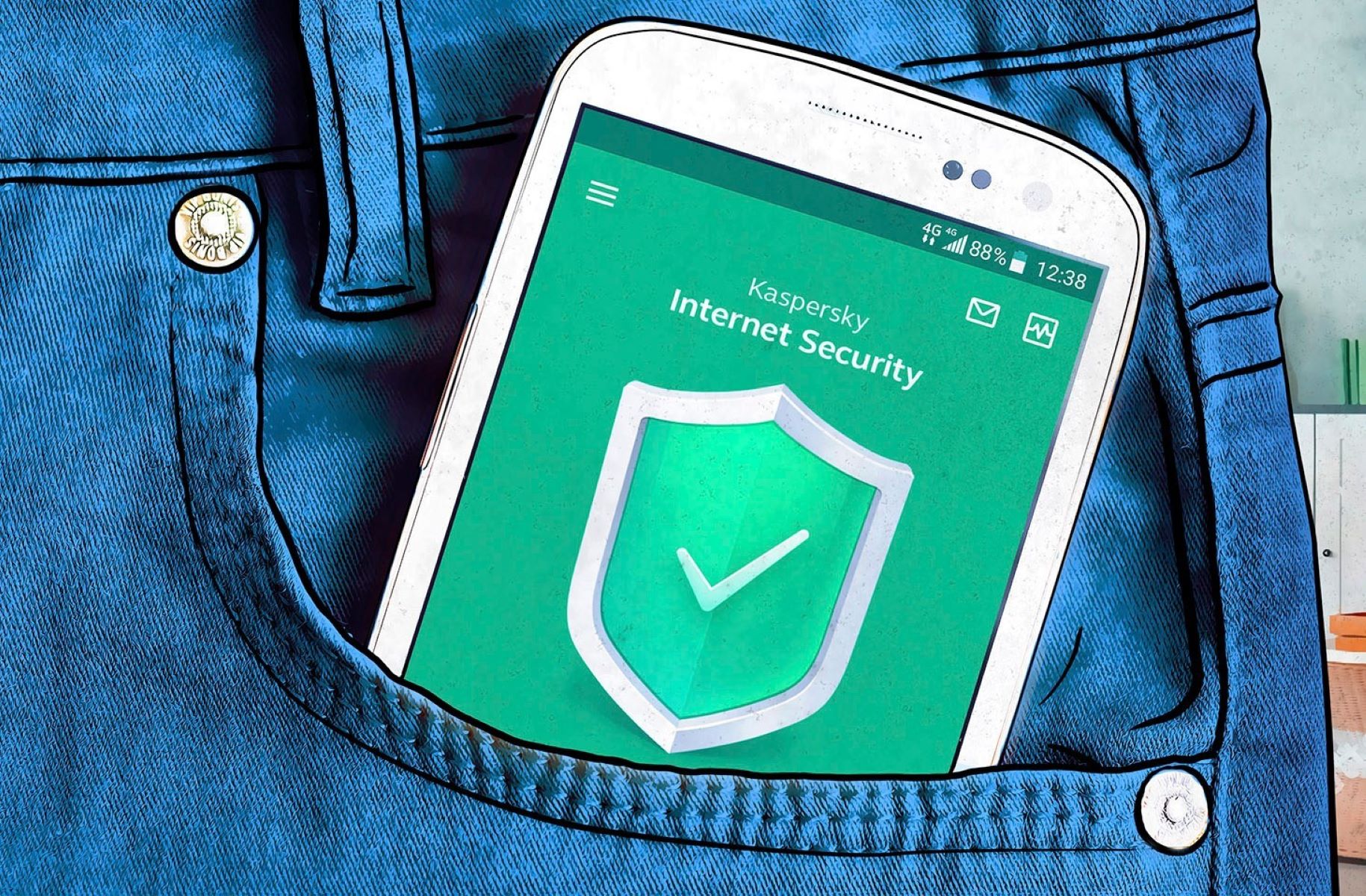Introduction
In today’s digital age, where online threats are becoming more sophisticated and prevalent, having reliable antivirus software is crucial to protect your devices and personal information. A powerful antivirus program can safeguard your computer from viruses, malware, ransomware, and other malicious attacks, providing you with peace of mind while browsing the web or downloading files.
While there are numerous paid antivirus options available in the market, not everyone may be willing or able to invest in such software. Fortunately, there are also several reputable free antivirus solutions that can offer adequate protection for your devices without costing you a dime.
Whether you’re a budget-conscious individual, a student, or simply someone looking for a cost-effective solution, this article will guide you on how to find and utilize free antivirus software effectively. We’ll explore the reasons why you need antivirus protection, where to find reliable free options, how to evaluate them, and provide tips for optimizing their performance. By the end, you’ll have a better understanding of how to stay secure online without breaking the bank.
It’s important to note that while free antivirus software can be a valuable tool, it might not offer the same comprehensive features and support as their paid counterparts. Nevertheless, with the right knowledge and precautions, you can still enjoy a significant level of protection without spending any money. So, let’s dive in and explore how you can get free antivirus software to safeguard your digital world.
Why You Need an Antivirus
In an increasingly interconnected world, where we rely heavily on technology for work, communication, and entertainment, the need for antivirus software cannot be overstated. Here are several reasons why having an antivirus program is essential:
- Protection against viruses and malware: Antivirus software acts as a defensive shield against various types of harmful programs that can infect your computer or mobile devices. It helps detect, quarantine, and remove viruses, trojans, worms, and other malicious software that can cause serious damage to your system or compromise your sensitive information.
- Safeguarding personal data: Your device contains a vast amount of personal and confidential data, such as financial information, passwords, personal documents, and photos. Antivirus software can help prevent unauthorized access to your data, ensuring that it remains secure and protected from identity theft and cybercrime.
- Preventing system slowdowns: Malware and viruses can slow down your computer’s performance, making it frustratingly sluggish. By actively scanning and removing malicious threats, antivirus software helps optimize system resources, ensuring your device runs smoothly and efficiently.
- Protection during online activities: Engaging in online activities like browsing websites, downloading files, and opening email attachments can expose you to potential security risks. Antivirus software provides real-time protection, blocking suspicious websites, phishing attempts, and infected files, reducing the chances of falling victim to cyber attacks.
- Safe social media interactions: With the increasing popularity of social media platforms, cybercriminals often exploit these platforms to spread malware or launch phishing attacks. Antivirus software can help identify and warn against potential threats on social networks, keeping you safe while connecting with friends and family online.
- Peace of mind: Having antivirus software installed on your devices gives you peace of mind, knowing that you have an added layer of protection against cyber threats. It allows you to browse the internet, download files, and use your devices without constantly worrying about potential security breaches.
By understanding the importance of antivirus software and the risks associated with having an unprotected device, you can take the necessary steps to safeguard your digital life. In the next section, we’ll explore where you can find reliable free antivirus options.
Where to Find Free Antivirus Software
When it comes to finding reliable and effective free antivirus software, there are several reputable sources you can explore. Here are some of the most popular options:
- Official vendor websites: Many renowned antivirus providers offer free versions of their software for personal users. Visiting the official websites of antivirus companies like Avast, AVG, Avira, or Bitdefender allows you to download their free antivirus software directly from reliable sources.
- Software download platforms: Software download platforms like CNET, Softonic, or FileHippo offer a wide range of free software, including antivirus programs. These platforms typically provide user reviews and ratings to help you make an informed decision about the best antivirus software for your needs.
- Operating system providers: Certain operating system providers offer built-in antivirus solutions as part of their software packages. For example, Microsoft Windows includes Windows Defender, which offers basic antivirus and anti-malware protection. Apple devices come with the built-in XProtect feature for malware detection.
- Open-source antivirus software: If you prefer open-source software, there are free antivirus options available in the open-source community. Software like ClamAV and Comodo offer reliable antivirus protection without any cost, and their source code is publicly available for scrutiny.
- Internet Service Providers (ISPs): Some ISPs include free antivirus software as part of their service packages. Check with your internet service provider to see if they offer any antivirus software for their subscribers.
When downloading free antivirus software, it’s crucial to ensure that you are obtaining it from legitimate sources. Be cautious of third-party websites or unfamiliar sources, as they may offer modified or fake antivirus software laced with malware. Stick to the official websites or well-known software download platforms to minimize the risk of downloading malicious programs.
Once you’ve selected a free antivirus software option, the next step is to evaluate its features and performance. We’ll explore this in the next section.
Evaluating Free Antivirus Options
With a multitude of free antivirus options available, it’s important to assess and compare their features to ensure you choose the most suitable one for your needs. Here are some factors to consider when evaluating free antivirus software:
- Antivirus detection and protection: Look for software that provides robust detection and protection against a wide range of malware and viruses. It should be capable of identifying and removing known threats, as well as protecting against emerging and zero-day attacks.
- Real-time scanning: Real-time scanning is a critical feature that continuously monitors your system, files, and downloads for any malicious activity. This proactive approach helps prevent malware from infecting your device, providing an additional layer of protection.
- System performance impact: Some antivirus programs can be resource-intensive, causing your device to slow down. Opt for software that strikes a balance between effective protection and minimal impact on system performance, ensuring smooth operation of your device.
- User interface and ease of use: The user interface should be intuitive and easy to navigate, allowing you to access and configure the antivirus settings effortlessly. Look for software that offers a user-friendly experience, making it convenient for you to perform scans, update the software, and manage quarantine files.
- Additional features: While free antivirus software may not offer the extensive features of paid solutions, some still provide extra features such as firewall protection, parental controls, or secure browsing extensions. Evaluate these additional features and consider if they align with your specific needs.
- Updates and support: Regular updates are crucial for keeping your antivirus software effective against the latest threats. Look for software that provides regular virus definition updates, security patches, and software upgrades. Additionally, check if the antivirus provider offers reliable customer support options in case you encounter any issues or need assistance.
Reading user reviews and expert recommendations can also provide valuable insights into the performance and reliability of different antivirus options. Take the time to do research, compare features, and evaluate your priorities to make an informed decision.
Once you’ve selected the free antivirus software that meets your criteria, the next step is to install and set it up properly. We’ll cover this in the following section.
Installing and Setting Up Your Chosen Antivirus
After choosing the free antivirus software that suits your needs, it’s time to proceed with the installation and configuration process. Follow these steps to ensure a smooth setup:
- Download from official source: Visit the official website of the antivirus software you’ve selected and download the installation file from a trusted source. Be cautious of third-party websites, as they may provide manipulated versions of the software.
- Run the installation file: Locate the downloaded file and double-click on it to start the installation process. Follow the on-screen instructions to complete the installation. Make sure to read and understand any prompts or options during the installation process, such as choosing a custom installation or opting out of additional software bundles.
- Configure the settings: Once the installation is complete, you may be prompted to configure the antivirus software settings. Take the time to review and customize the settings according to your preferences. Pay attention to options such as scan schedules, automatic updates, real-time protection, and notifications.
- Perform an initial scan: After configuring the settings, perform an initial scan of your device to check for any existing malware or viruses. This will allow the antivirus software to identify and remove any potential threats present on your system.
- Enable automatic updates: Ensure that the antivirus software is set to receive automatic updates. Regular updates are crucial to maintain the highest level of protection against the latest threats. Configure the software to download and install updates automatically to keep it up to date at all times.
- Schedule regular scans: Set up a schedule for regular antivirus scans. Depending on your usage patterns and preferences, schedule scans to run daily, weekly, or monthly. Regular scans will help detect and eliminate any potential threats that may have infiltrated your system.
During the installation and setup process, it’s important to carefully review any options related to additional software or toolbars. Uncheck any boxes that prompt you to install unnecessary or unwanted software to avoid cluttering your system with unnecessary programs.
Once you have installed and properly configured your chosen antivirus software, it’s vital to stay proactive in maintaining your device’s security. In the next section, we will discuss essential tips for optimizing the performance of your antivirus software.
Tips for Optimizing Your Antivirus Software
To ensure that your free antivirus software provides optimal protection and performance, consider implementing the following tips:
- Keep your antivirus up to date: Regularly check for updates and ensure that your antivirus software is running the latest version. Updates often include important security patches and enhancements that can improve the software’s effectiveness against new threats.
- Enable real-time protection: Activate the real-time protection feature of your antivirus software to continuously monitor your system for any potential threats. This feature helps prevent malware or viruses from infecting your device, ensuring constant protection.
- Schedule automatic scans: Set up regular automatic scans to run at convenient times when your device is typically idle. Automatic scans can help detect and remove any hidden threats that might have slipped through the real-time protection of your antivirus software.
- Be cautious with email attachments and downloads: Exercise caution when opening email attachments or downloading files from the internet. Your antivirus software can provide scanning and protection for these files, but it’s important to remain vigilant and avoid opening suspicious attachments or downloading files from untrusted sources.
- Avoid running multiple antivirus programs simultaneously: Running multiple antivirus programs concurrently can lead to conflicts and performance issues. Stick to using a single antivirus software that best suits your needs and ensure that it is properly installed and up to date.
- Regularly clean your device: Aside from antivirus software, regularly clean up your device by removing unnecessary files, temporary files, and browser cache. This helps optimize system performance and ensures smooth operation of your antivirus software.
- Secure your network: Secure your home network by setting strong passwords, enabling encryption, and regularly updating your router’s firmware. A secure network reduces the chances of unauthorized access or cyber-attacks on your devices.
- Practice safe online browsing habits: Avoid clicking on suspicious links, visiting potentially harmful websites, and sharing personal information on unsecured platforms. Adhering to safe browsing practices minimizes the risk of encountering malware or falling victim to phishing attempts.
- Regularly back up your files: Backup important files regularly to an external hard drive, cloud storage, or another secure location. This ensures that even if your device is compromised, you can still access and recover your important data.
By implementing these optimization tips, you can maximize the effectiveness of your antivirus software, providing a higher level of protection for your device and personal information.
Next, let’s discuss the importance of keeping your antivirus software updated by regularly checking for updates and security patches.
Updating Your Antivirus Regularly
Regularly updating your antivirus software is vital in maintaining its effectiveness against new and evolving threats. Here’s why keeping your antivirus updated is crucial:
- New threat detection: Cybercriminals constantly develop new malware and viruses to exploit vulnerabilities in systems. Antivirus software updates include the latest virus definitions and detection techniques, allowing it to identify and protect against newly discovered threats.
- Improved security features: Antivirus updates often include security patches and enhancements that address known vulnerabilities in the software. These updates help strengthen your antivirus program’s ability to protect your device from both existing and emerging threats.
- Optimized performance: Software updates not only enhance security but also improve the overall performance of your antivirus software. As developers release updates, they may optimize code, fix bugs, and introduce performance improvements that can enhance scanning speed and minimize system resource usage.
- Enhanced compatibility: Operating system updates, new applications, or changes in web browsers can sometimes lead to compatibility issues with antivirus software. Regular updates ensure that your antivirus software remains compatible with the latest technology, providing seamless protection without any compatibility-related disruptions.
- Protection against zero-day exploits: Zero-day exploits refer to vulnerabilities that are discovered and exploited by attackers before the software developers become aware of them. Antivirus updates often include fixes for such vulnerabilities, reducing the risk of falling victim to zero-day attacks.
Most antivirus software is designed to check for updates automatically and prompt you to install them. However, it’s important to verify that your antivirus software is indeed updating regularly. Check the settings of your antivirus program to ensure that automatic updates are enabled.
In addition to automatic updates, you can periodically check the official website of your antivirus software provider for any manual updates or patches. Some antivirus software providers also offer email alerts or notifications to inform users about critical updates or security advisories.
To ensure the highest level of protection, alongside regular updates, it’s essential to keep other software and operating systems on your device updated as well. Installing the latest security patches for your operating system and using updated applications reduces the risk of vulnerabilities that attackers may exploit.
By prioritizing regular updates and staying vigilant, you can maintain a strong defense against new and emerging threats, ensuring the longevity and effectiveness of your antivirus software.
Next, let’s delve into best practices for safe browsing and downloading to minimize the risk of encountering malware or falling victim to online scams.
Best Practices for Safe Browsing and Downloading
Practicing safe browsing and downloading habits is essential for maintaining your online security and minimizing the risk of encountering malware or falling victim to online scams. Here are some best practices to keep in mind:
- Use trusted websites: Stick to well-known and reputable websites when browsing or downloading content. Be cautious of websites that offer pirated or illegal downloads, as these often contain hidden malware or viruses.
- Look for secure connections: When providing sensitive information or making online purchases, ensure that the website has a secure connection. Look for the lock icon in the browser’s address bar, indicating that the website uses SSL encryption to protect your data.
- Avoid clicking on suspicious links: Be skeptical of unsolicited emails, messages, or pop-up windows that contain unknown links. These could be phishing attempts or lead to malicious websites. Avoid clicking on such links unless you can verify their authenticity.
- Verify file sources: Before downloading any files, verify the legitimacy of the source. Be cautious of downloading files from unfamiliar websites or through peer-to-peer file-sharing networks, as they could contain infected or modified files.
- Scan downloads before opening: Always scan downloaded files with your antivirus software before opening or executing them. This extra step helps detect and eliminate any potential threats before they can harm your device.
- Update browsers and plugins: Keep your web browsers and plugins up to date with the latest security patches. Outdated browsers and plugins can have vulnerabilities that attackers can exploit to infect your device with malware.
- Enable browser security features: Utilize browser security features, such as pop-up blockers and phishing filters, to enhance your protection while browsing the internet. These features can help block malicious pop-ups and warn you when visiting potentially dangerous websites.
- Exercise caution with email attachments: Be wary of email attachments, especially if they come from unknown or suspicious senders. Don’t open attachments unless you were expecting them and can verify their legitimacy. Even emails from known senders can be spoofed, so exercise caution.
- Disable auto-downloading and automatic file execution: Configure your browser and operating system settings to disable auto-downloading of files and automatic file execution. This prevents potentially harmful files from being automatically downloaded and run without your knowledge.
- Use a comprehensive security suite: Consider using a comprehensive security suite that includes features such as antivirus, firewall, anti-malware, and anti-phishing protection. These all-in-one solutions provide layered security and offer a holistic approach to protecting your device and data.
By adhering to these best practices, you can significantly reduce the risk of encountering malware or falling victim to online scams. Stay vigilant, be mindful of the websites you visit and the files you download, and rely on your antivirus software to provide an extra layer of protection.
In the next section, we will address some frequently asked questions about free antivirus software to provide further clarity on this topic.
Frequently Asked Questions about Free Antivirus Software
Here are some commonly asked questions about free antivirus software:
1. Is free antivirus software as effective as paid antivirus software?
While free antivirus software may not offer the same comprehensive features and support as paid options, many reputable free antivirus programs provide adequate protection. They can effectively detect and remove known malware and viruses, helping to keep your device secure.
2. Are free antivirus software updates automatic?
Most free antivirus software automatically checks for updates and prompts you to install them. However, it’s important to verify that the automatic update feature is enabled within the software’s settings. Regular updates are crucial to stay protected against the latest threats.
3. Do I need additional security software if I have free antivirus software?
While free antivirus software can provide a good level of protection, it may not include all the features found in comprehensive security suites. Depending on your specific needs, you may consider using additional security software, such as a firewall or anti-malware program, to enhance your protection.
4. Can I use free antivirus software on multiple devices?
Many free antivirus programs allow you to use them on multiple devices, including PCs, laptops, and mobile devices. However, the licensing terms and limitations may vary between different software providers. It’s best to review the specific terms and conditions of each program.
5. Are free antivirus software options available for Mac devices?
Yes, there are free antivirus software options available for Mac devices. While Macs are generally less targeted by malware compared to Windows systems, it’s still important to have antivirus protection to safeguard against potential threats.
6. Can free antivirus software detect and protect against zero-day exploits?
Free antivirus software may have some capability to detect and protect against zero-day exploits. However, it’s important to note that zero-day exploits are constantly evolving, and their detection and prevention may not be as advanced as in paid antivirus solutions, which often come with more frequent updates and advanced threat intelligence.
7. How often should I perform a scan with my free antivirus software?
Performing regular scans with your free antivirus software is recommended to ensure your device remains protected. The frequency of scans depends on your usage patterns, but running a full system scan at least once a week is a good starting point. You can also schedule automatic scans based on your preferences.
8. Can I switch from a free antivirus program to a paid one in the future?
Yes, you can switch from a free antivirus program to a paid one at any time. The transition typically involves uninstalling the free software and then installing and activating the paid antivirus program. It’s important to research and choose a reputable paid antivirus solution that meets your specific requirements.
Remember to refer to the documentation and support provided by the specific antivirus software provider to find detailed answers to any questions or concerns you may have.
Conclusion
In today’s digital landscape, having reliable antivirus software is essential to protect your devices and personal information from the ever-evolving threat landscape. Free antivirus software can be a viable option for those looking to secure their devices without incurring additional costs. By following the guidelines discussed in this article, you can effectively utilize free antivirus software and optimize its performance:
- Understand the importance of antivirus protection and why it is necessary in today’s interconnected world.
- Explore reputable sources where you can find trustworthy free antivirus software.
- Evaluate the features, performance, and compatibility of different free antivirus options to choose the most suitable one for your needs.
- Properly install and configure your chosen antivirus software to ensure maximum protection.
- Keep your antivirus software and other software on your device updated regularly to guard against the latest threats.
- Follow best practices for safe browsing and downloading to minimize the risk of encountering malware or falling victim to online scams.
While free antivirus software provides valuable protection, it’s important to note that paid antivirus solutions may offer more comprehensive features and support. Depending on your specific needs and budget, you may consider upgrading to a paid option for enhanced security.
Remember, maintaining a proactive approach to cybersecurity is crucial. Stay informed about emerging threats, practice safe online habits, and regularly educate yourself on best practices for protecting your digital life. By doing so, you can enjoy a safer and more secure digital experience.







